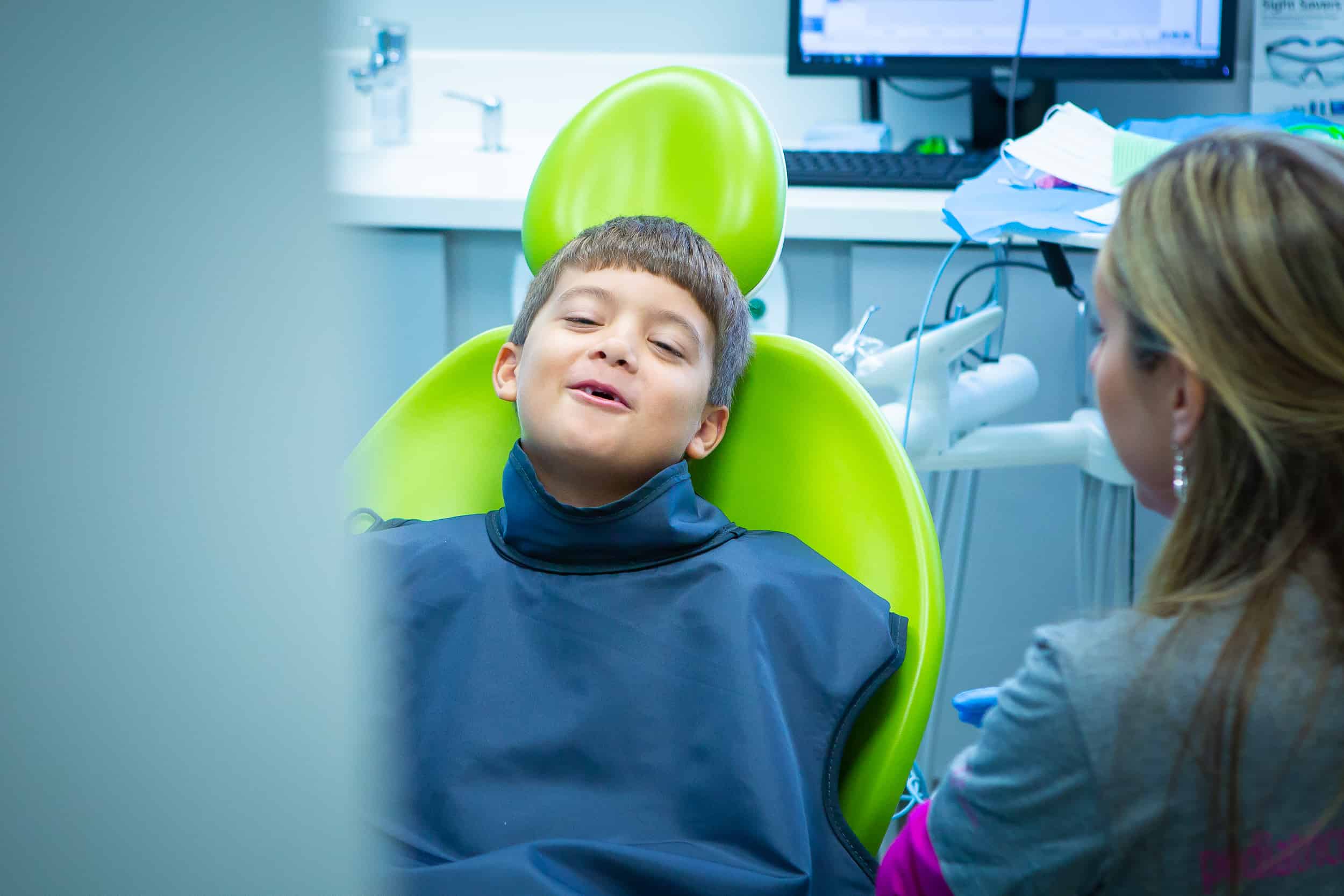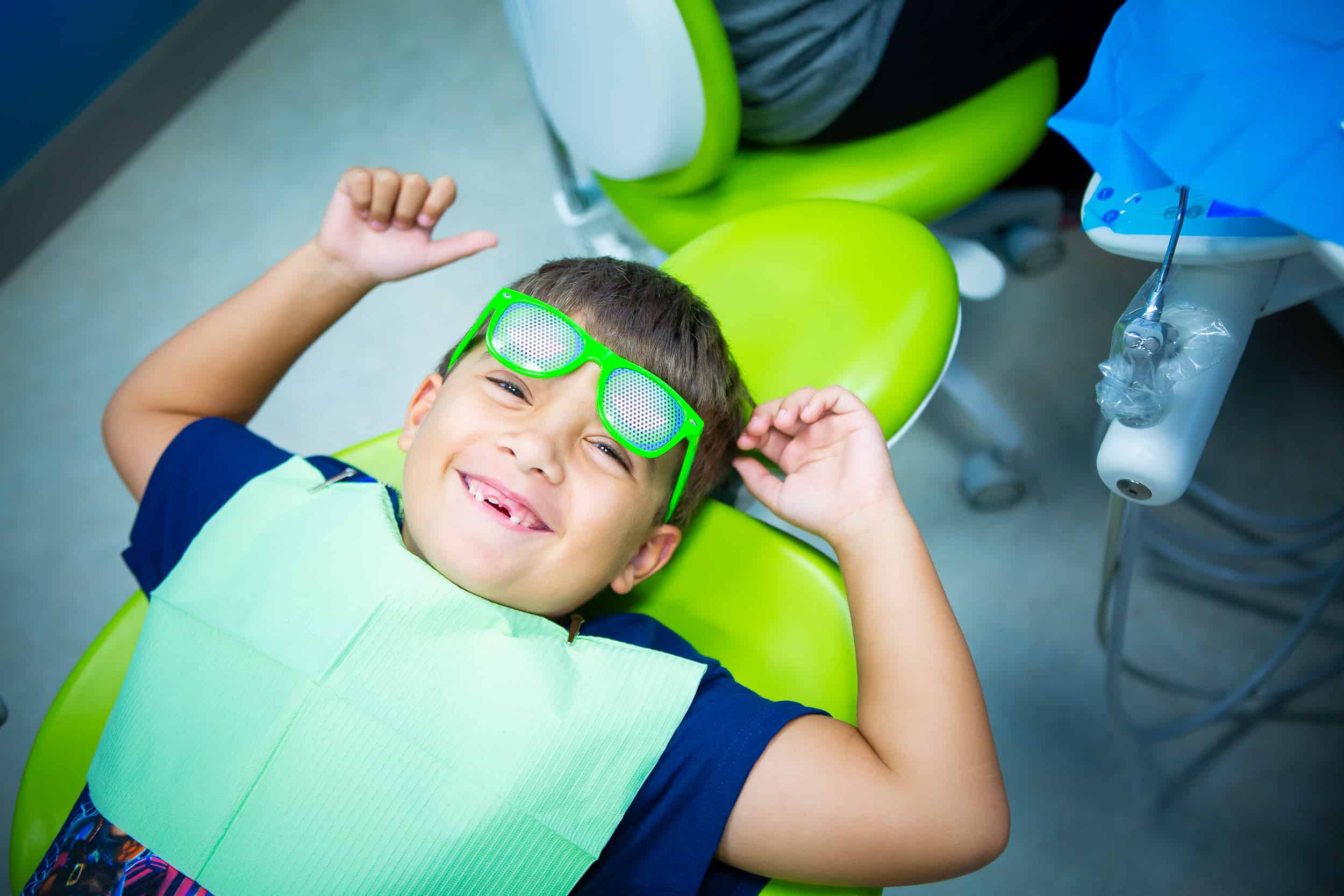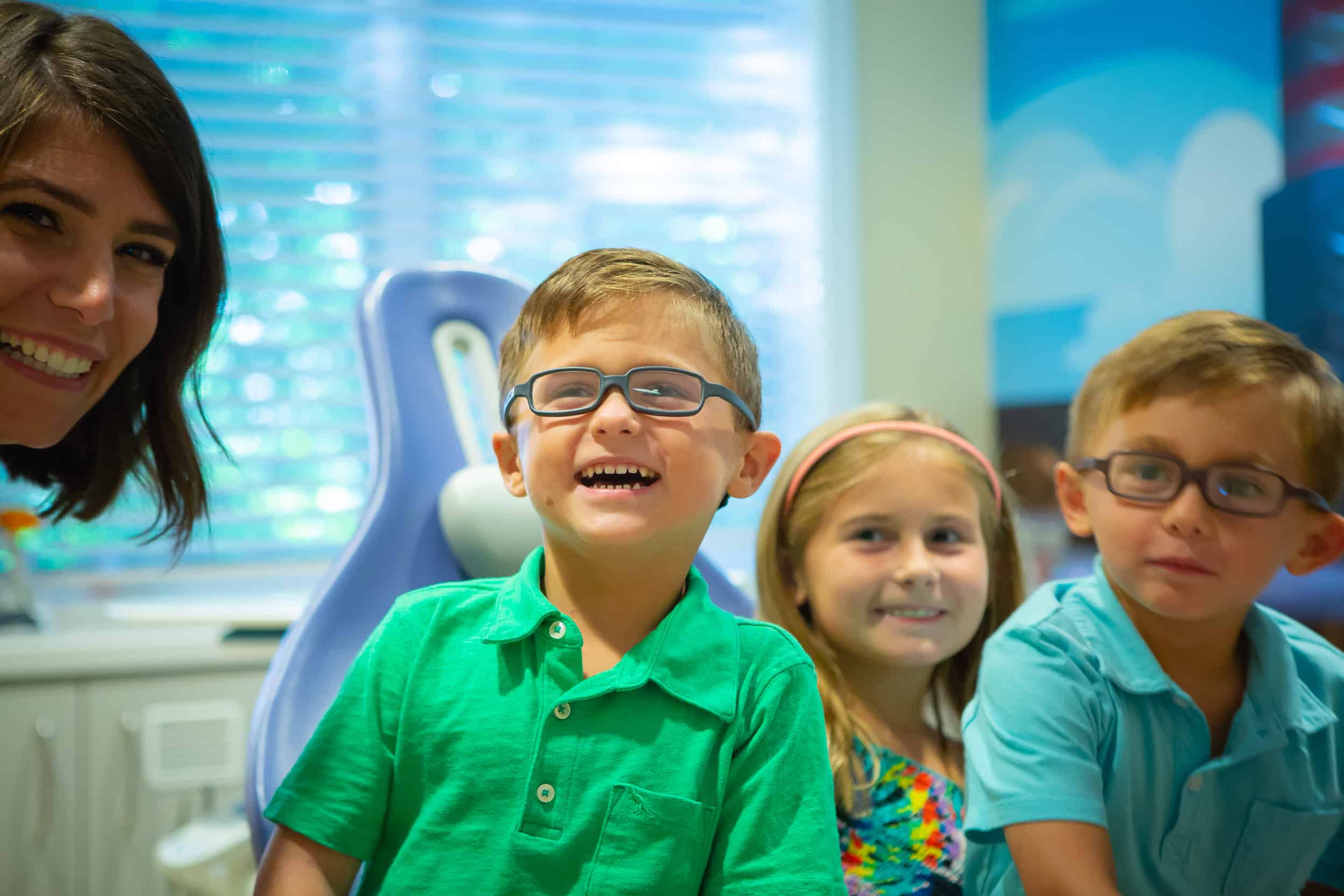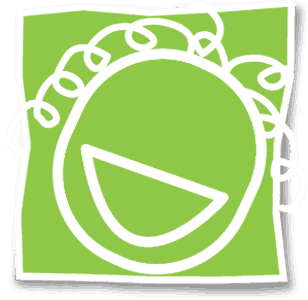As a parent, you probably have a lot of questions about your child’s oral health. Let’s face it: oral health is a big deal for young kids! The habits they develop today will affect their oral and overall health in the future.
When do you start brushing babies’ teeth? Do you know when to start brushing baby teeth with toothpaste? How important is it to learn proper tooth brushing? When should your child first see us? How do you keep the cavities away?
We’ve heard tons of questions at the Center for Pediatric Dental Health, so we thought we’d take time to answer the common ones. We have the answers!
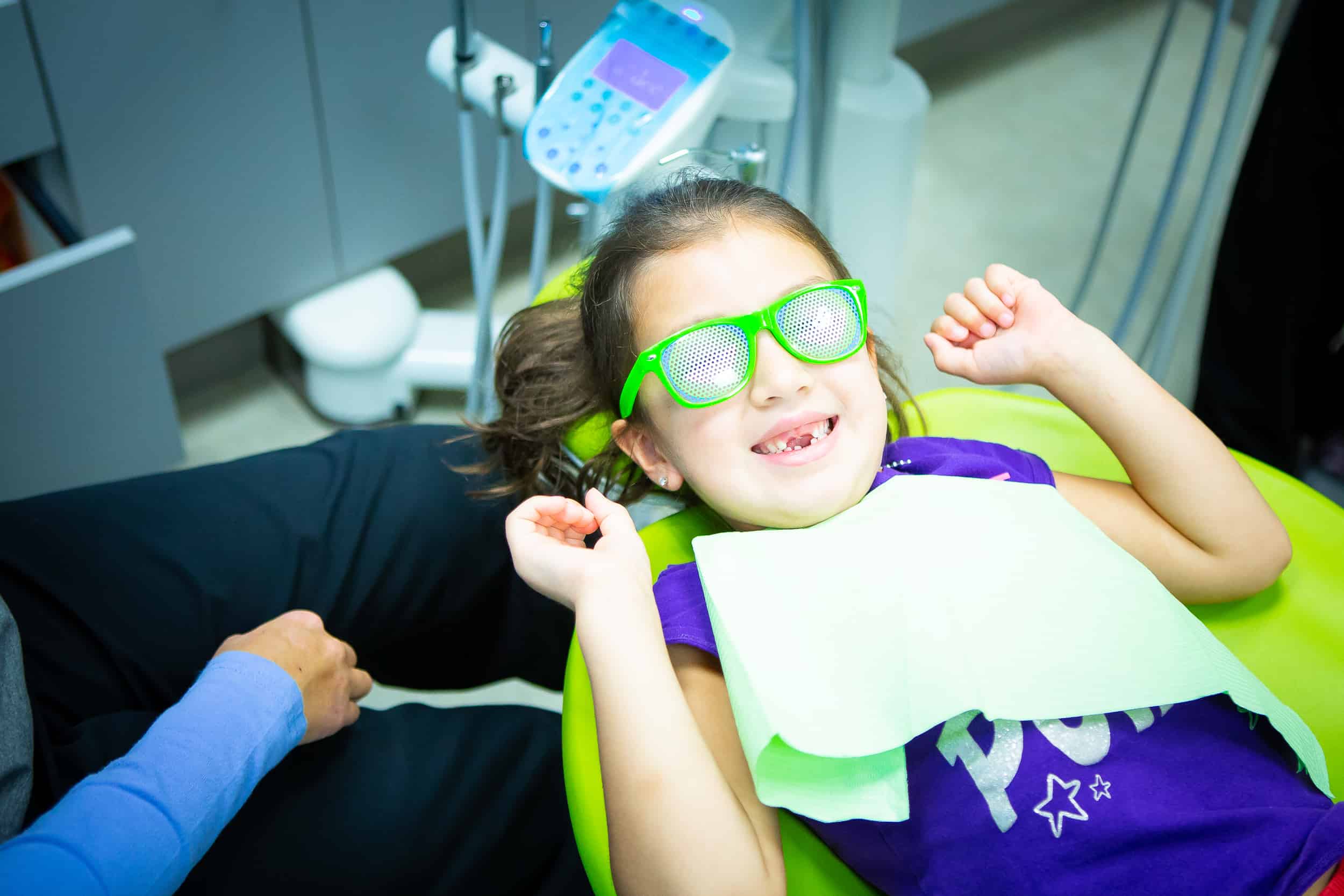
When Should I Start Brushing My Child’s Teeth?
If your child has a tooth, brush it! Teeth brushing should start as soon as possible — even before that first tooth erupts.
The earlier you teach your child good brushing and flossing habits, the better the chances they will carry those habits through their lifetime. Here is a map to starting your child on the road to great oral health!
Newborn Oral Hygiene
Do you know how to brush baby teeth? Obviously, you can’t brush a child’s teeth if there are no teeth to brush. You have to start with your infant’s gums. Do you know how to brush babys gums? When do you start brushing infants teeth?
Infants need their gums cleaned regularly to keep them healthy. Use a warm, damp cloth to clean your infant’s mouth after feedings. This helps keep babys mouth healthy but also gets them used to having something in their mouth after meals. It makes for an easier transition to a toothbrush later.
First Tooth
Once that first tooth erupts, you can clean it with a baby-sized, soft-bristled toothbrush. A manual toothbrush would be better than an electric toothbrush at first. They can move to an electric one once their coordination is better.
The American Academy of Pediatrics (AAP) recommends brushing your baby’s teeth twice a day with a soft-bristled toothbrush and a smear of fluoride toothpaste as soon as the first tooth appears. This is also the time to schedule your baby’s first dental visit.
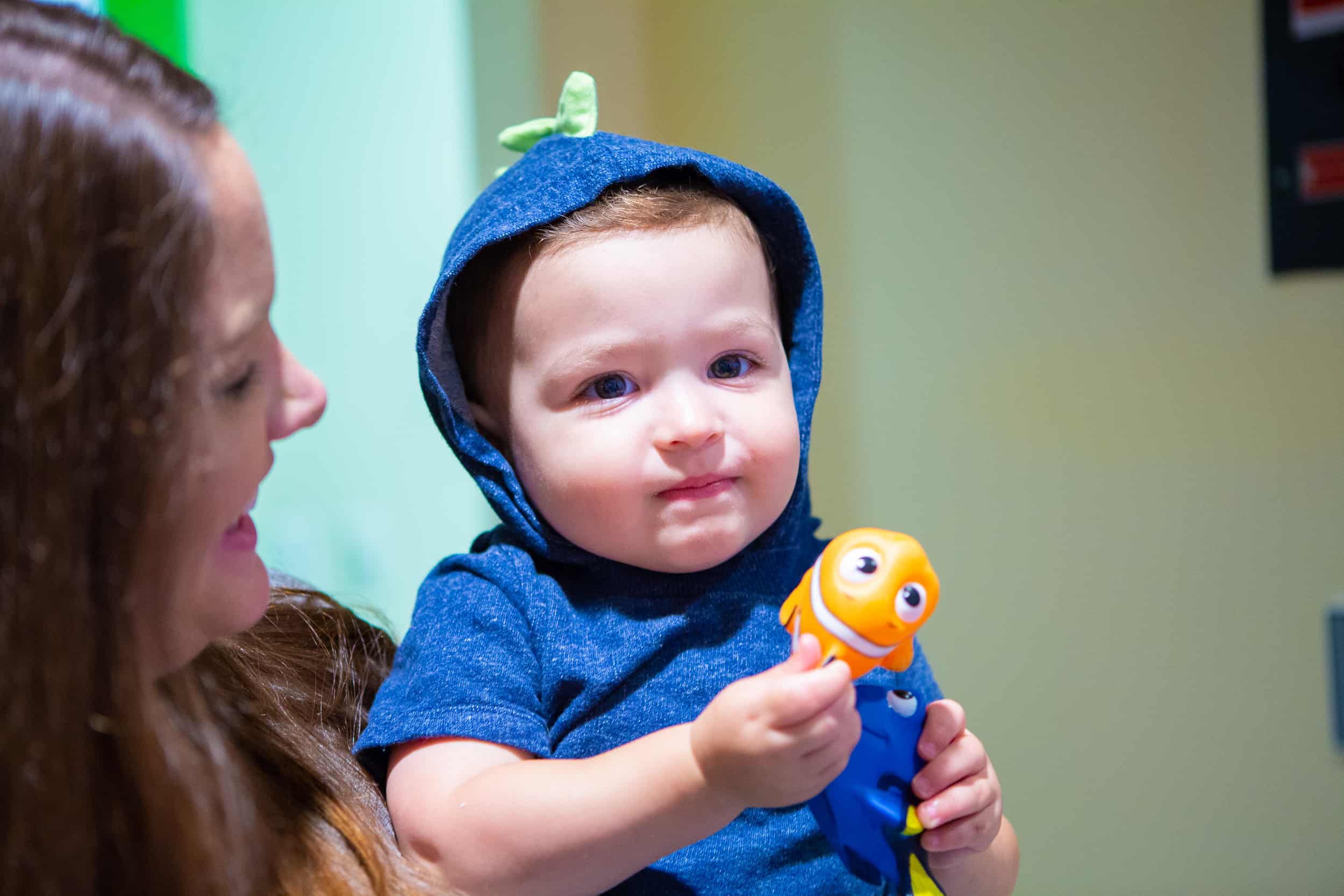
Ages 3-6
Your child will continue to have teeth come in through their toddler years. By age 3, they may be coordinated enough to start brushing their teeth themselves. At this point, you can use a pea-sized amount of toothpaste.
Be sure to teach your child to spit out the excess toothpaste. While fluoride toothpaste is good for your child’s teeth, too much fluoride can make them sick, so it’s important to ensure they spit out excess toothpaste rather than swallow it.
Flossing Teeth
Once they have more teeth, it’s a good time to teach them proper flossing. You’ll need to start flossing their teeth with waxed dental floss (a water flosser doesn’t offer the scrubbing power and may be too harsh for your child’s gums).
Teach them to floss before they brush. This way, they will move the particles and plaque onto the front and back surfaces of the teeth. They can then be removed easily by brushing.
Your child needs to floss their teeth at least once a day as soon as they have teeth that are side by side. Usually, these are the front upper and lower incisors.
When Should My Child First See a Dentist?
You may think you should wait until your child has all their teeth. You want to visit far sooner than that! Your child’s first dental visit should be about 1-2 years of age, just after their first teeth erupt.
We will check the teeth coming in and x-ray your child’s mouth to ensure the rest are following correctly. We will also spot any potential issues, such as extra teeth or teeth that may erupt in the wrong position.
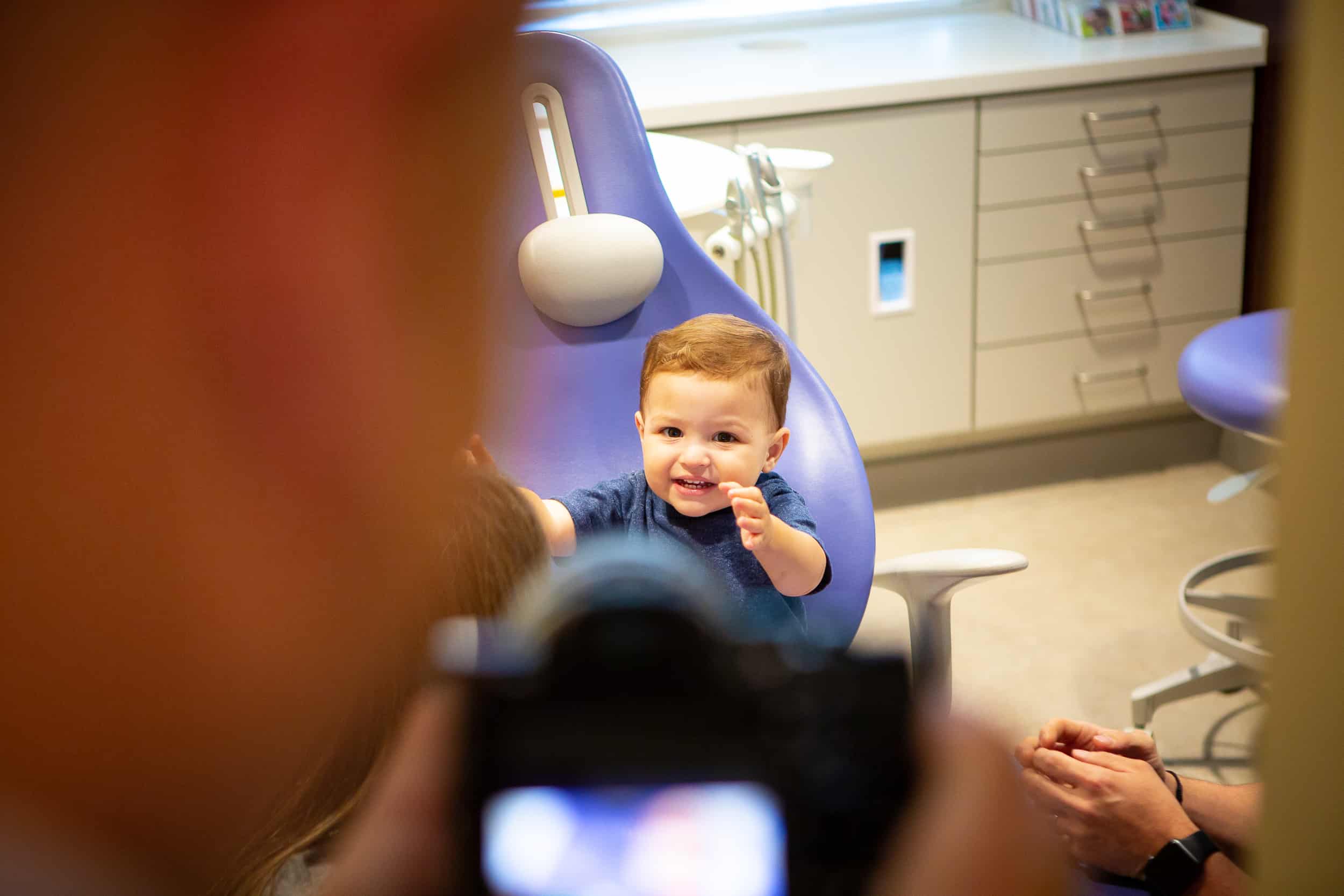
How Can I Prevent Cavities in My Child’s Teeth?
The easiest way is through good oral hygiene, a healthy diet, and regular dental visits. Brushing twice daily with fluoridated toothpaste and flossing regularly will help prevent cavities. Make sure your kiddo has a healthy, balanced diet (yep, including those veggies!).
Starting your child on proper brushing techniques early helps set the foundation for a lifetime of healthy smiles. Use a soft-bristled toothbrush with a smear of fluoride toothpaste about the size of a grain of rice for children under three, and teach them to brush in gentle circular motions. This brushing technique is effective in removing plaque and food particles while being gentle on their delicate gums. Ensure they are brushing twice a day, once in the morning and again before bed, to build consistency and help protect their teeth. An early start with the right methods prevents tooth decay and establishes healthy oral hygiene habits as they grow.
Finally, make sure to bring your child to the dentist regularly. We will check for any signs of cavities and make sure your little angel has clean, healthy teeth.
Do I Need to Fix Cavities in Baby Teeth?
You may think cavities in primary teeth (also known as milk teeth) are no big deal. After all, they’re going to fall out eventually, right?
Cavities can cause an infection if they make it to the living portion of the tooth. Your child could lose their tooth early because of a cavity. Other teeth could move to fill the space, leaving no room for the permanent tooth to erupt. This could lead to crooked teeth.
Your child also needs their baby teeth to learn to speak properly. Several sounds depend on the tongue’s placement against the teeth. Your child may not learn to say those sounds properly if the teeth aren’t there.
It’s important to take care of cavities as soon as possible, even in baby teeth.
What Can We Expect With My Child’s First Visit to the Dentist?
We know first impressions are everything, so we will do all we can to make your child comfortable when they enter our office! We’ll keep the wait short and make sure your kid knows how we will clean and examine their teeth.
We want to make it as easy and fun as possible, so they’ll want to come back and see us! (We have several more tips on what to expect for your child’s dental visit.)
More Questions? Just Ask!
The Center for Pediatric Dental Health has three incredible pediatric dentists and a team that genuinely cares about you and your child’s oral care! We know kids, so we know how to make a trip to the dentist fun and relaxing for them. You can request an appointment to see the difference we can make to your child’s oral health.


